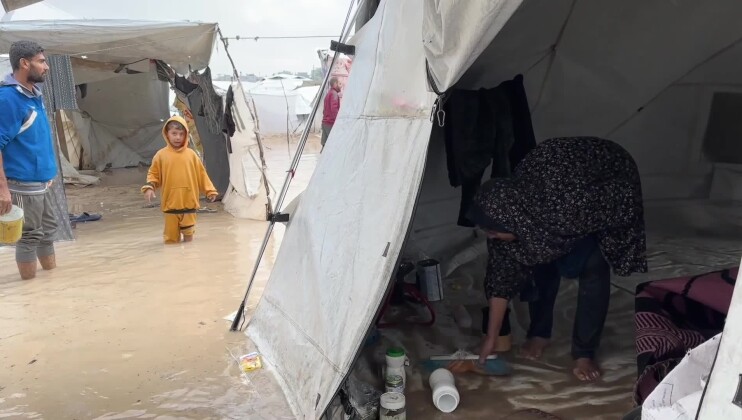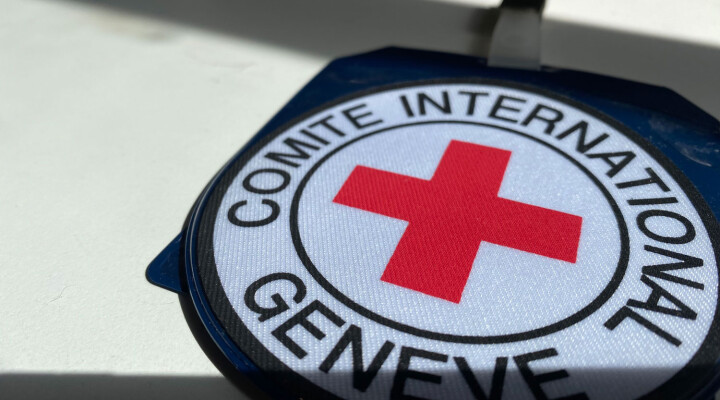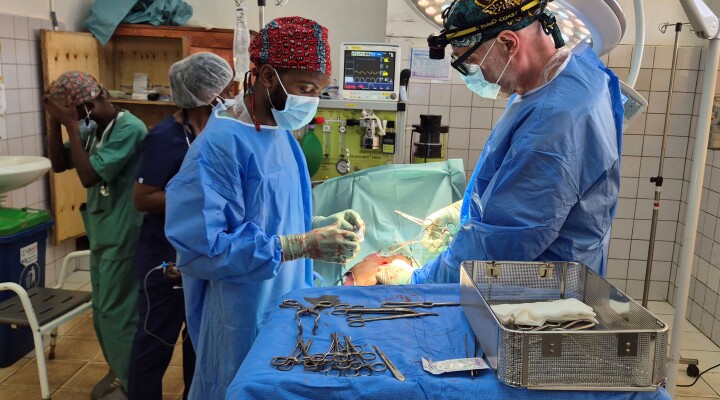Rafah, Gaza: Unrelenting tide of injuries in the last fully operational hospital
Over the past month, a sharp surge in mass casualty incidents linked to aid distribution sites has overwhelmed Gaza’s shattered healthcare system, pushing its already-diminished capacity past its limit.
The 60-bed Red Cross Field Hospital in Rafah—now the last fully operational hospital in the area—has been running beyond maximum capacity almost daily. Its staff are racing to treat an unrelenting tide of injuries, the vast majority caused by gunfire.
Since the launch of new aid distribution sites around May 27, the field hospital has treated over 2,200 weapon-wounded patients, most of them across more than 21 separate mass casualty events. Hospital staff have logged more than 200 deaths over this period.
The scale and frequency of these incidents are without precedent. In just over a month, the number of patients treated has surpassed the total seen in all mass casualty events during the entire previous year.
“In the previous rotations, we would work in the OT between 8-10 cases. Right now, we are working on 30-40 cases per day which is a massive difference just in terms of workload,” says operating theatre nurse Haitam al-Hasan.
“We have people screaming, rushing, trying to be the first in the line because, of course, everybody wants to be treated first. We have a variety of injuries, mostly complex injuries, blast injuries, but mainly gunshot injuries.”
Among the wounded are toddlers, teenagers, elderly, mothers—and overwhelmingly, young men and boys. Most say they were simply trying to get food or aid for their families.
To meet the overwhelming demand, physiotherapists support nurses, cleaning and dressing wounds and taking vitals. Cleaners now serve as orderlies, carrying stretchers wherever they are needed. Midwives have stepped into palliative care—offering pain relief and holding the hands of those who will not survive.
Since its opening, the Red Cross Field Hospital has conducted more than 100,000 consultations and over 4,600 surgical procedures.
For further information, please contact:
Sarah Davies, Jerusalem: sadavies@icrc.org | +97252 601 9150
Hachem Osseiran, Dubai: hosseiran@icrc.org | +971 504 254 091
Established in 1863, the ICRC operates worldwide helping people affected by conflict and armed violence and promoting the laws that protect victims of war. A neutral, independent and impartial organization, its mandate stems from the Geneva Conventions of 1949.
SHOTLIST
Length: 03:41
Location: Gaza – Red Cross Field Hospital
Date Of Filming: 22/06/2025
Copyright: ICRC access all
On Screen Credit: ICRC written or logo attached to story
00:00 – 00:04 ICRC car entering the field hospital
00:04 – 00:33 Various of patients
00:33 – 00:56 Various of medical staff in the Emergency Department treating wounded patients with mass casualties
00:57 – 1:11 SOUNDBITE - Haitam Al-Hasan - Operating Theatre Nurse (in English)
“In the previous rotations, we would work in the OT between 8-10 cases. Right now, we are working on 30-40 cases per day which is a massive difference just in terms of workload.”
1:11 – 1:36 Various of Palestinian Red Crescent and ICRC medical staff wheeling various patients to the Operating Theatre.
1:36 – 2:52 SOUNDBITE - Haitam Al-Hasan - Operating Theatre Nurse (in English)
“We have a situation right now in Gaza, which is characterized by shortages of essentially everything, which includes fuel and food and medicines. So, by now, we see people coming to the field hospital on donkey cars, wounded being transported on hand-pulled cards, donkey cards, and carried by their relatives. Whereas we saw people arriving in ambulances in the previous rotations, we see hundreds of people coming to the field hospital. We have seen that in the last couple of weeks. Normally, with each wounded, we have a couple of family members or relatives coming into the field hospital. When we're talking about 50 to 250 casualties, which we have seen in the last three weeks, you can imagine that there is a big chaos unfolding inside the hospital. We have people screaming, rushing, trying to be the first in the line because, of course, everybody wants to be treated first. We have a variety of injuries, mostly complex injuries, blast injuries, but mainly gunshot injuries.”
2:52 –3:41 Various of the Emergency Department and the Operating Theatre
Ends



